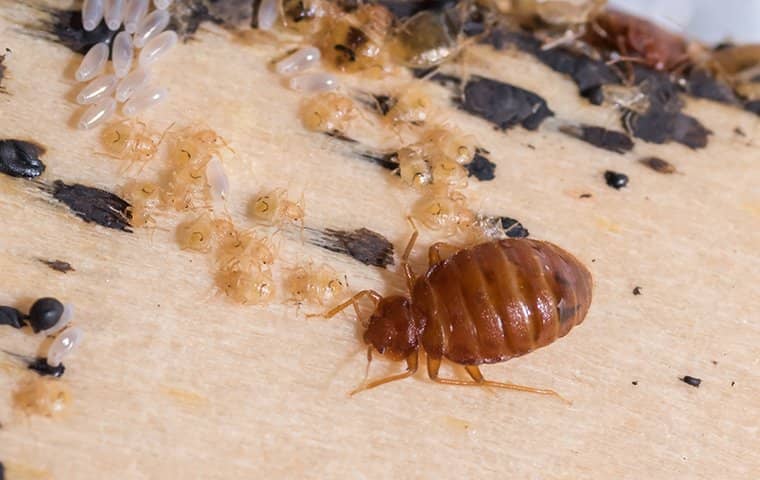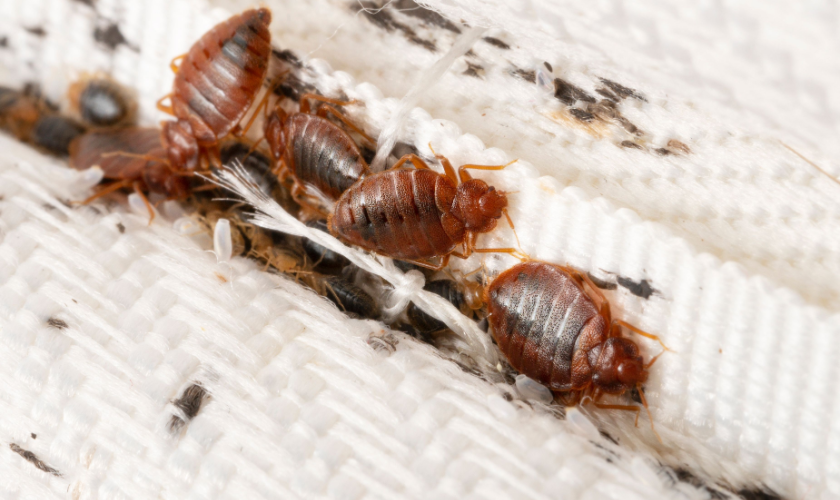Sorts Of Parasite Control: Which Method Is Right for Your Invasion?
When confronted with a parasite infestation, the option of an appropriate technique for insect control is important in successfully managing the scenario. From chemical treatments to organic services, there exists a series of methods that can be used to deal with different kinds of pests. Each technique includes its very own set of considerations and advantages, making the decision-making process a nuanced one. Understanding the subtleties of each strategy and reviewing their compatibility with the details pest invasion at hand is important for attaining long-term success in parasite administration. By discovering the numerous kinds of bug control techniques offered, people can make enlightened choices customized to their special scenarios, making certain a much more lasting and efficient result in parasite eradication.
Chemical Insect Control
Chemical parasite control includes the use of artificial or normally obtained chemicals to take care of and remove pest populaces effectively. This approach is frequently utilized in agriculture, forestry, and residential settings to fight a variety of bugs, consisting of weeds, bugs, and rodents. Using chemical pesticides can provide quick and targeted solutions to pest infestations, making it a popular selection for numerous individuals and services.
Among the crucial advantages of chemical parasite control is its capacity to quickly get rid of parasites, reducing the threat of damage to crops, residential or commercial property, and human health and wellness. By using particular chemicals that target certain parasites, this method can efficiently control problems while decreasing damage to beneficial microorganisms and the environment when applied properly.
Nonetheless, using chemical insect control also increases issues about possible adverse impacts on non-target types, water resources, and human health. It is crucial to follow safety standards, apply chemicals properly, and think about alternate insect control techniques to lessen these risks and guarantee sustainable pest monitoring techniques.
Biological Parasite Control
Organic bug control, additionally understood as biocontrol, makes use of living microorganisms to manage and decrease pest populations normally. By utilizing the pest's natural killers or pathogens, organic parasite control provides a lasting and ecologically pleasant solution to pest management.

Mechanical Pest Control
Using physical and hands-on methods to take care of insect populaces, mechanical bug control offers a different technique that does not count on the use of living organisms or artificial chemicals. This method involves the use of barriers, traps, or other gadgets to literally deter or get rid of pests. By blocking pest access factors or setting up traps to capture them, mechanical pest control can successfully reduce infestations without presenting chemicals into the setting.
One usual example of mechanical insect control is making use of mesh screens on doors and home windows to avoid pests from going into buildings. This basic yet reliable approach works as a physical barrier, maintaining insects out while allowing for correct air flow. In addition, devices like mousetraps, fly swatters, and ultrasonic repellents fall under the mechanical bug control classification.
While mechanical parasite control techniques can be labor-intensive and require normal monitoring and upkeep, they offer a eco friendly and lasting service for handling insect problems. By incorporating various mechanical techniques, residential property proprietors can produce a detailed bug control method that reduces reliance on chemical pesticides.
Physical Pest Control

Some typical physical parasite control approaches include making use of barriers such as internet or displays to avoid parasite access, traps to capture and remove bugs, and hand-picking to literally remove insects from plants rat traps or frameworks. In addition, methods like warm therapies can be utilized to control insects like bed pests by increasing the temperature level to levels that are dangerous to the insects.
Physical insect control is especially valuable in integrated insect management (IPM) approaches, where several pest control approaches are integrated for reliable bug administration while decreasing making use of chemicals. By making use of physical insect control strategies, individuals can successfully deal with pest invasions with marginal environmental influence.
Integrated Insect Management
When carrying out physical parasite control methods as part of insect administration techniques, Integrated Pest Administration (IPM) emerges as a detailed method that leverages different strategies to effectively regulate pest populations. IPM concentrates on long-term avoidance of parasites with a mix of biological, social, physical, and chemical tools tailored to particular parasite problems. By incorporating several control methods, IPM intends to reduce the risks connected with parasites while likewise decreasing dependence on chemical solutions.
One trick facet of IPM is the emphasis on surveillance and examining pest populaces to figure out the most appropriate control techniques. This positive method enables early intervention and targeted methods, bring about much more effective parasite management. Furthermore, IPM advertises environmentally pleasant practices by prioritizing non-chemical control approaches and only utilizing pesticides as a last hotel.
Conclusion

By making use of the parasite's all-natural killers or pathogens, biological parasite control provides a sustainable and ecologically pleasant service to pest monitoring. - Kings pest control Cincinnati
Utilizing hand-operated and physical methods to manage insect populaces, mechanical pest control provides a different approach that does not rely on the use of living microorganisms or synthetic chemicals.A reliable strategy to handling insect populaces without counting on chemical or biological techniques involves the usage of physical insect control techniques.When executing physical bug control methods as component of bug management methods, Integrated Pest Monitoring (IPM) arises as an extensive strategy that leverages various strategies to efficiently control pest populaces. Chemical insect control involves the use of chemicals, organic bug control utilizes natural killers, mechanical bug control entails physical barriers, physical insect control consists of trapping or removing insects, and integrated pest monitoring incorporates multiple methods for an all natural method to pest control.